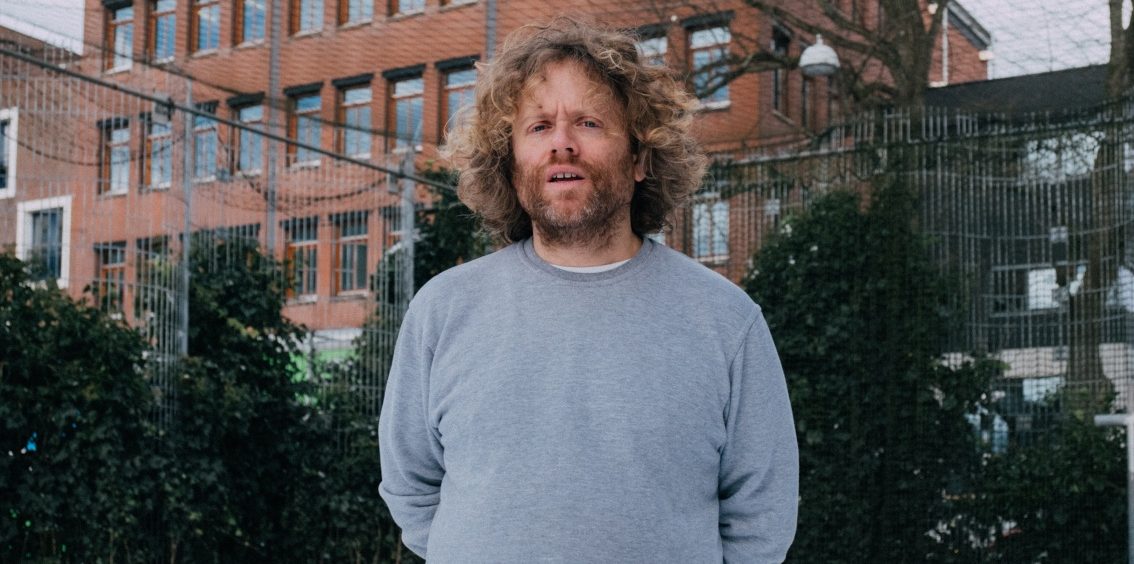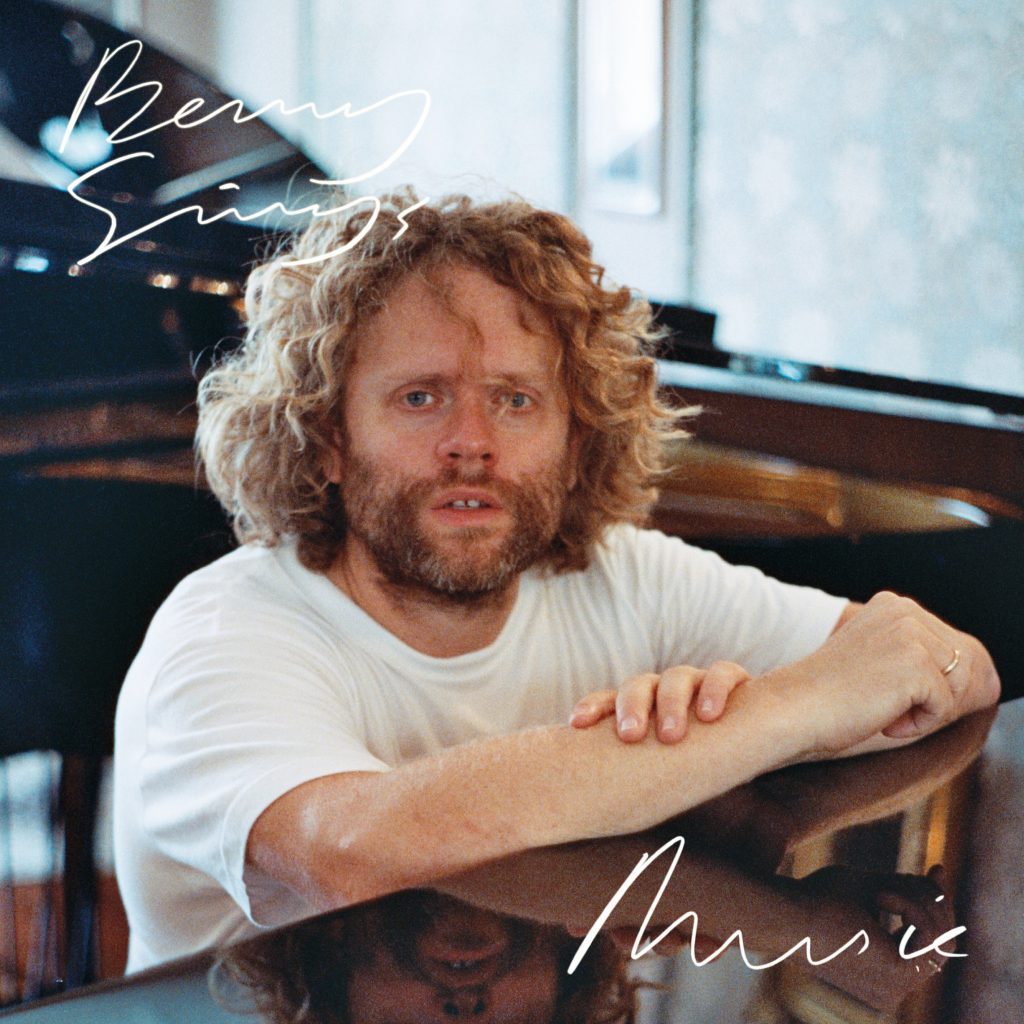Tim, you called your last album “City Pop”, after that smooth Japanese pop music that peaked in the 1980s. Your new album is simply and universally called “Music”. What was your inspiration for the title?
It’s simply the song “Music”, which is a pretty important track for the album. And in the song I’m singing “Music…” (He sings). So that’s basically the thing. When I’m looking for a title, I usually look for the important songs on the album. And I thought it was just kind of funny to call your own album “Music”. It’s so over the top, it’s kind of corny and I always like to play with that a little bit.
Did you have a specific concept in mind for the album or did it come about naturally after collecting a number of songs?
Yes, the latter. So it happened quite spontaneously. I just worked with a lot of people and tried to make some good songs.
How long did you work on the album?
I think it might have been a year or a little more. I recorded most of the album here in Holland and some of the songs like the Mac DeMarco song in L.A.
Did you wrote most of the songs before the pandemic?
Yes, I wrote the basis of the album before the pandemic. So there was really a blueprint. Nothing was finished yet. There were a lot of empty parts, just a few sketches.
Was it difficult to work with other musicians during the pandemic?
Not really, I’m mostly working on my own. And the blueprint was already there. So finishing it was the hard part. And so it was all just for me. I already canceled 2020 before anyone else did. I was going on a big trip to New Zealand with my family for a couple of months. And then when I came back, I finished the album.
What were your sources of inspiration while making this album?
Well, for instance, I wanted to dig a little deeper for this album, so I got into French chansons and the sort of how they do chords, melodies and lyrics, and I tried to replicate that and failed. You try all these different angles of music that was before you and try to see if there is something there for you. You know, that’s basically how I work.
Listening to your album, you can recognize influences from 70s and 80s West Coast pop, soul, but also R&B. What kind of music did you listen to while working on the album?
I listen to a lot of different music. But that stuff doesn’t really make it onto my albums because you just have to work with your voice and I’m not the kind of singer that could go anywhere. When I sing a jazz ballad or a rock song, it doesn’t work. So you always try different angles, but mostly I come back to the Benny Sings Sound because that’s just the best thing that clicks with my voice.
When I hear your songs on the radio, I recognize after a few bars that it’s a song of yours. How would you describe your trademark sound?
I would say pretty loud kicks and snares, like hip hop. And the chords are mellow, they’re jazzy, a lot of seventh and ninth chords and it has to be soft and smooth. Yeah, and then with that Benny voice, you know?
How important is the groove for you? When you work on new tracks, do you start with a melody or a certain beat?
I often start with a beat. Sometimes I try a song without a beat like a ballad, but that never works out. So I always return to beats again. And I noticed that when my voice comes together with beats, something happens, there’s a click. So the beat is very important for me and in music in general. As much as I sometimes love singer-songwriter music or ballads, the beat music is always my first go to. I need that movement.
Tim, let’s talk about some of the songs on the album. When I heard that you recorded “Rolled Up” with Mac DeMarco, I immediately thought it was a match made in heaven.
It was just a wish of mine to work with Mac DeMarco. We contacted him and he wanted to do it because he liked my music too. So we just went there and hung out at his house. We were in the studio in L.A. for a day and we just wrote. It felt very natural. We’re kind of similar in songwriting, I think.
“Nobody’s Fault” is another outstanding track on the album. Tom Misch plays a terrific guitar solo on it. How did you get in touch with him?
I’m just a fan of his music. We first were in contact to do a writing session. I just asked him and he said yes. That was great! We recorded the song during the pandemic, so it was all online. The song was finished already and we only needed that guitar solo at the end.
The song is also a favorite of yours. So what do you like about it?
It just moved me, you know. It’s catchy, it gets me and I like the duality of the lyrics: Hey, it’s nobody’s fault! Someone trying to rationalize something painful, maybe going through a break-up or being rejected and saying: ‘No, I’m fine, I’m good.’ And it has this tragedy in itself, which I like.
“Miracles” is another excellent song that delights with a great gospel sound thanks to guest contributions from Emily King and Kelsey Gonzales of The Free Nationals. You also contributed to the Free Nationals debut album. What do you like about their music?
Well, they are just part of that revival that happened a couple of years ago. You know, you had this period where it was only New Wave and Depeche Mode and everything was black and a kind of end-of-the-world feeling. I really didn’t feel at home at all in that era. And I didn’t know what to do actually with my own music. So I was a bit lost. But then suddenly Anderson .Paak came up and got really popular. And you felt that joyful, jazzy 90s hip hop sound came back and was in vogue again. And they are a big part of that. So, I’m grateful. I really love that music and that sound.
“Here It Comes” is one of the few tracks you wrote alone for the album. It takes a look at your youth in Dordrecht when you were a skater.
That period of time is for me a very nostalgic period, which I think of with love. It was a very light and sunny time in my life. We were skaters in Dordrecht and just lived on the streets and did whatever we wanted. So it was also a very important period, it was formative in terms of music taste and where you want to go in life. Maybe the reason that I wanted to talk about that was because of the beat that I made and it made me just think of the old Benny, you know? So just grasping that simple hip hop street vibe made me want to write the song.
Do you think your age makes you nostalgic?
No, I think I was always very nostalgic. Already as a teenager, I was always nostalgic about the time of my early childhood until I was about ten or twelve. It was before my parents got divorced. We had a lovely house. It was all very protected and warm and safe and nice. And I think, I’ve always had a longing for that feeling.
What do you think: Would the skater Tim like the music of the artist Benny?
Yes, he would, because I was making similar music at that time. We had a band called the Love Boat in the early 90s and Grunge was all the rage, but we decided to make sunshine soft music. After that, I went into all different kinds of directions and make more dark, arty music and other stuff. But I went back to that after that period. So I’m kind of making the music today I wanted to make when I was 16 years old.
“Music” is already your eighth album release. When you look back on your career today. How would you describe your development as an artist?
So, I mean, in terms of the sound and the image that I want to display, there’s nothing much changed. But today it is easier for me to portray what I want to say with a song. You know, I just got better at the craft of songwriting.
Do you want to evoke certain emotions in your listeners with your songs?
I think it’s not a specific emotion, it’s just that you feel it. That’s the whole thing. It just happens. So I write song after song, and sometimes suddenly a song gets you and you just get hooked. And that’s what I’m looking for. It’s all about the feeling, you know?
Would you describe yourself as a kind of soul musician?
Yeah, maybe like independent soul or strange soul. I don’t know. But yes, it has got to do something with soul.
Looking at your work over the past years, you notice how important working with other artists and musicians are for you. What do you love about collaborations?
Collaborations just make the art grow in an intense way. When you make music on your own, you’re only doing one side of reality. When multiple artists join, of course it can fail, and that happens a lot, but when it does work, it becomes something bigger. And that’s really interesting.
You live with your family in Amsterdam. How big do you think is the influence of the city and its attitude to life on your music?
I’m not sure. I’m not a person who brings a lot of personal stuff into the lyrics. I tend to work on it as a craft, more than anything else. The Dutch culture is down to earth. I think I have that. So I’m not very mystical or very spiritual about it. For me music is a biological urge. And I make music to let people have that biological urge. So that down to earth, getting to work every day and doing the work, maybe that is the Dutch way.
How important is music for you personally, for your well-being?
I don’t think it is as important for me as for other people. Some people see it as a higher calling in life and they need it. I don’t think it’s the case with me. I do just love it. I would say I love it more than I need it. I like to do it, but I don’t particularly need it for my emotions to go free. I know people use it for that. And music can be a great help for that. But that’s not what I’m using music for. For me, it’s just pure and enjoyable experience.
The Corona situation makes live gigs difficult at the moment. I read that you don’t see yourself as a “live music guy”. Despite that, are you planning live performances to promote the album?
Yes! I mean, I was never really a life music guy, but something changed that. I love playing with my current band now, and I miss it. And we’re going to play live on April 9th in the Planetarium here in Amsterdam, and we’re going to stream that live show. It’s going to be a big thing! It’s been so long since we played live and I can’t wait! And then at the end of the year, if all goes well, we will do a real world tour.
Thanks for your time Tim and best of luck with the new album!
Photo: Tess Janssen


